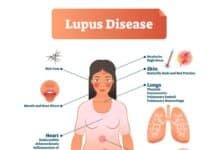Introduction to Pannus in Dogs
Before diving in for the natural remedies for pannus in dogs let us first know Pannus, it also known as Chronic Superficial Keratitis (CSK), is an autoimmune disease that affects a dog’s eye cornea. This progressive condition can lead to impaired vision and, in severe cases, blindness if left untreated. Primarily seen in breeds like German Shepherds, Greyhounds, and Border Collies, Pannus is influenced by genetic predisposition and environmental factors such as UV light exposure.
Understanding the condition and its impact on a dog’s eyesight is crucial for timely diagnosis and management. While traditional treatments are available, many dog owners are exploring natural remedies to holistically manage Pannus. This blog post will delve into these natural options and their potential benefits.
According to the American College of Veterinary Ophthalmologists, chronic superficial keratitis (Pannus) is a prevalent immune-mediated eye condition in dogs that requires timely diagnosis and appropriate management to prevent vision impairment.
Table of Contents
Common Symptoms of Pannus
Recognizing the symptoms of Pannus early on can make a significant difference in managing the condition effectively. Here are some signs to look out for:
- Red or cloudy eyes: A telltale sign of inflammation.
- Thickening of the cornea: Often visible as a greyish haze.
- Discharge from the eyes: Can be watery or mucus-like.
- Squinting or sensitivity to light: Indicative of discomfort or pain.
- Pigmentation changes in the cornea: Dark spots may appear as the condition progresses.
If your dog exhibits any of these symptoms, it’s essential to consult with a veterinarian for a proper diagnosis.
Traditional Treatment Options
Conventional treatments for Pannus typically involve topical corticosteroids or immunosuppressive drugs to reduce inflammation and slow disease progression. While these treatments can be effective, they often require long-term use and can have potential side effects such as increased susceptibility to infections.
Natural Remedies for Pannus in Dogs
Exploring natural remedies can offer several benefits, including reduced dependency on long-term medications and a holistic approach to your dog’s overall health. Here are some natural remedies to consider:
Dietary Adjustments
A well-balanced diet rich in antioxidants can support your dog’s immune system and overall eye health. Incorporate foods like:
- Carrots are high in beta-carotene, converted into vitamin A, essential for good vision.
- Blueberries: Packed with antioxidants, particularly vitamin C and vitamin K, which help protect the eyes from oxidative stress.
- Spinach and Kale: Rich in lutein and zeaxanthin, carotenoids that play a crucial role in eye health by reducing the risk of chronic eye diseases.
- Salmon is an excellent source of omega-3 fatty acids that can help reduce inflammation and support retinal health.
- Eggs: Contain lutein, zeaxanthin, and zinc, all of which contribute to maintaining healthy eyesight.
In addition to adding these specific foods, consider switching to high-quality, grain-free dog food free from artificial additives and preservatives. This can minimize inflammatory responses and improve overall health, including the eyes. Supplements such as fish oil, vitamin E, and zinc can also be beneficial, but always consult your veterinarian before starting any new dietary regimen or supplement.
Herbal Supplements
Certain herbs have shown promise in providing relief from the symptoms of Pannus due to their anti-inflammatory and immune-boosting properties. Below are some herbal supplements to consider:
- Eyebright (Euphrasia officinalis): Known for its benefits in promoting eye health, Eyebright can help reduce inflammation and soothe eye irritation. It can be administered as eye drops or as an oral supplement.
- Turmeric (Curcuma longa): Rich in curcumin, turmeric has potent anti-inflammatory properties. Incorporating a small amount of turmeric into your dog’s diet or using it as a supplement can help manage inflammation associated with Pannus.
- Bilberry (Vaccinium myrtillus): Similar to blueberries, bilberries are highly antioxidants and traditionally used to improve vision and strengthen the eyes. Bilberry supplements can support overall eye health and reduce oxidative stress.
- Calendula (Calendula officinalis): Often used in herbal eye drops, calendula has soothing and anti-inflammatory properties. It can help calm irritation and support healing in the cornea.
- Ginkgo Biloba: This herb is known for enhancing blood circulation, which can benefit overall eye health. Ginkgo Biloba supplements can aid in reducing inflammation and supporting the immune system.
It’s important to note that while herbal supplements can be beneficial, they should be used under the guidance of a veterinarian to ensure they are safe and appropriate for your dog’s specific condition.
Environmental Changes
Reducing your dog’s exposure to UV light can help manage Pannus symptoms:
- UV-protective goggles: Products like Doggles can provide eye protection during outdoor activities.
- Shade and shelter: Ensure your dog can access shaded areas when outside.
Case Studies: Real-Life Examples
Several dog owners have reported success in managing Pannus with natural remedies. For instance, a German Shepherd named Max significantly improved his symptoms after his diet was enriched with antioxidants and omega-3 supplements. Another case involved a Greyhound named Bella, whose symptoms were mitigated through UV-protective goggles and herbal supplements.
Precautions and Consultation
While natural remedies can offer numerous benefits, it’s essential to exercise caution. A study published by the National Center for Biotechnology Information (NCBI) emphasizes the importance of veterinary consultation when managing canine ocular diseases, as professional guidance is crucial for selecting safe and effective treatment strategies.
- Please consult a veterinarian: Before introducing any new treatment, discuss it with your vet to ensure it’s safe and appropriate for your dog’s specific condition.
- Monitor for side effects: Monitor your dog for any adverse reactions to new foods or supplements.
- Combined with conventional treatment: In many cases, natural remedies can be used alongside traditional treatments for a more comprehensive approach.
Conclusion
Natural remedies for Pannus in dogs present a viable alternative for those looking to minimize their pet’s dependency on long-term medications. You can support your dog’s eye health and overall well-being by focusing on dietary adjustments, herbal supplements, and environmental changes. However, always consult a veterinarian before changing your dog’s treatment plan.
Are you interested in exploring natural remedies for your dog’s Pannus? Please share your experiences and questions in the comments below, and let’s continue the conversation about holistic approaches to managing this condition.
❓ Frequently Asked Questions (FAQ) About Natural Remedies for Pannus in Dogs
1️⃣ What is Pannus in Dogs?
Pannus, also known as Chronic Superficial Keratitis, is an autoimmune condition that affects the cornea of a dog’s eye. It causes inflammation, cloudiness, and pigmentation changes, potentially leading to vision impairment if left untreated.
2️⃣ Can Natural Remedies Cure Pannus in Dogs?
Natural remedies alone are unlikely to cure Pannus since it’s a progressive autoimmune disease. However, they may help manage symptoms, reduce inflammation, and support overall eye health when used alongside veterinary-prescribed treatments.
3️⃣ What Natural Supplements Are Commonly Used for Pannus?
Natural supplements like omega-3 fatty acids, turmeric, eyebright, and bilberry are often used for their anti-inflammatory and antioxidant properties. These supplements may help support eye health and reduce the severity of symptoms.
4️⃣ Is It Safe to Use Herbal Supplements Without Consulting a Vet?
No, always consult a veterinarian before starting any herbal supplements. While many herbs have potential benefits, improper use can cause side effects or interfere with prescribed medications.
5️⃣ How Can I Protect My Dog’s Eyes from UV Exposure?
You can protect your dog’s eyes from harmful UV rays by using UV-protective goggles (like Doggles) and ensuring your dog has access to shaded areas when outdoors. Reducing UV exposure helps slow the progression of Pannus.




